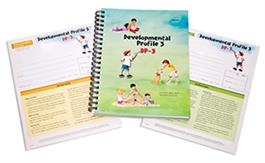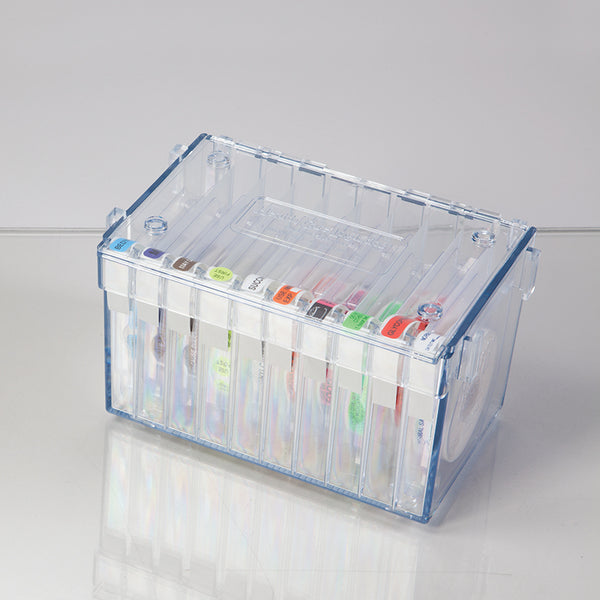
Developmental Profile Third Edition (DP-3)
Product Code : MPS8-12410
Vendor: PRO-ED
Available
Description
Ages: Birth to 12-11 years
Testing Time: 20 to 40 minutes
Administration: Individual
New in the DP-3
- Norm-based standard scores that are useful in determining eligibility for services
- Expanded age range up to 12 years, 11 months
- A Parent/Caregiver Checklist, which can be used when an interview is not possible
- Updated item content reflecting recent cultural and technological changes
- Improved interpretation guidelines
- Suggested intervention activities for each skill measured
- A General Development score for those who require an overall index of development
This fully revised third edition of the Developmental Profile strengthens and updates an instrument already considered the best of its kind. Like previous versions, the DP-3 evaluates children's functioning in five key areas, in just 20 to 40 minutes. However, this edition adds norm-based standard scores, an expanded age range, updated item content, clearer interpretive guidelines, a nationally representative standardization sample, and new empirical studies demonstrating its reliability and validity.
Comprehensive Yet Quick Designed to evaluate children from birth through age 12 years, 11 months, the DP-3 includes 180 items, each describing a particular skill. The respondent simply indicates whether or not the child has mastered the skill in question. The DP-3 provides a General Development score as well as the following scale scores:- Physical: Large- and small-muscle coordination, strength, stamina, flexibility, and sequential motor skills
- Adaptive Behavior: Ability to cope independently with the environment- to eat, dress, work, use current technology, and take care of self and others
- Social-Emotional: Interpersonal skills, social/emotional understanding, functioning in social situations, manner in which child relates to peers and adults
- Cognitive: Intellectual abilities and skills prerequisite to academic achievement
- Communication: Expressive and receptive communication skills, including written, spoken, and gestural language
Within each scale, basals and ceilings are used, so you don't have to administer all 180 items. And because each scale has its own norms, you don't have to use all five scales if you're interested in just one.
Ideal for Routine Screening or Focused Assessment
Because the DP-3 is comprehensive yet quick and cost-effective, it makes routine screening feasible. You can administer the test to large groups of children knowing that it will alert you to any significant problems that may be present. Or you can use the DP-3 when you have a specific question about a particular child. It's an effective way to investigate puzzling behavior, respond to parental concerns, or follow up on teacher observations. The test can lead to answers even when you have only a hunch that the child may have a problem.
A Convenient New Administration Option
While a parent interview is the preferred method of administration, the DP-3 offers an alternative that's useful when a face-to-face meeting is not possible. The Parent/Caregiver Checklist contains the same item content as the Interview Form (though language has been altered slightly). Written at a sixth-grade reading level, the Checklist can be completed, without your supervision, by the child's parent or other caregiver who is knowledgeable about the child's functioning.
Five Score Formats
DP-3 scores are available in five formats: standard scores, percentile ranks, stanines, age equivalents, and descriptive ranges. This gives you flexibility in using, reporting, and explaining test results. For example, you might choose standard scores for eligibility determination or progress monitoring; age equivalents for parent conferences; and stanines or percentiles for school records. Norms are based on a sample of 2,216 typically developing children representative of the U.S. population in regard to ethnicity, geography, and socioeconomic status.
COMPLETE DP-3 KIT INCLUDES: Examiner's Manual, 25 Interview Forms and 25 Parent/Caregiver Checklists. (©2007)














